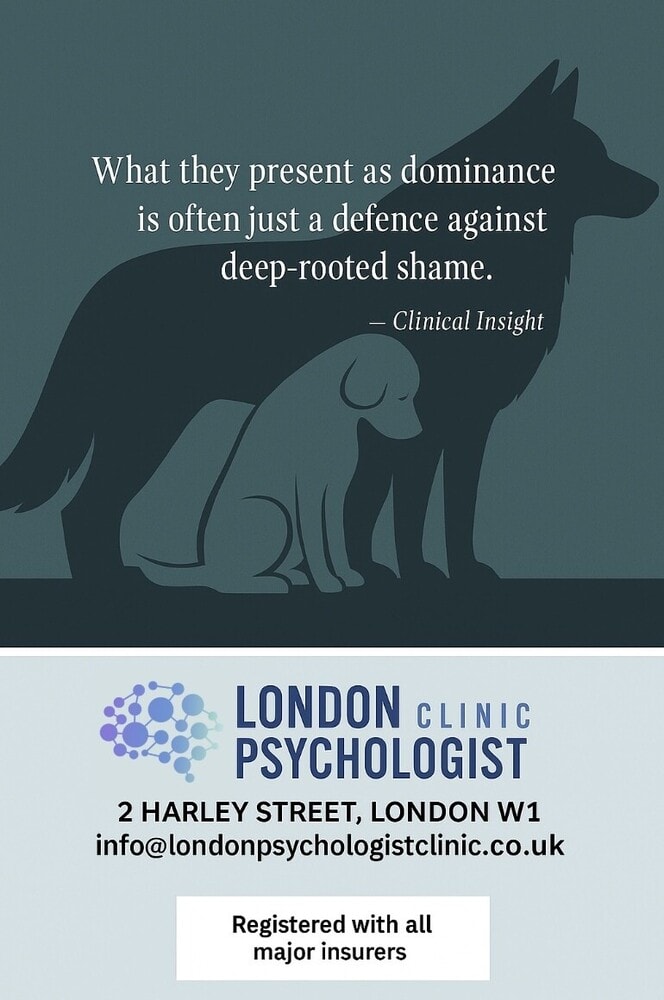The Narcissistic Impact

posted 1st August 2025

The Narcissistic Impact: More Than Just Arrogance
At its core, narcissism is not just vanity or self-importance. It’s a fragile self-image masked by an inflated sense of superiority. People with narcissistic traits may seem charming, successful, and magnetic at first—but over time, their behaviour can become manipulative, dismissive, controlling, or emotionally damaging to those around them.
Psychologists identify narcissism using criteria laid out in the DSM-5 (Diagnostic and Statistical Manual of Mental Disorders), including:
- A grandiose sense of self-importance
- Lack of empathy for others
- Need for excessive admiration
- Exploiting others for personal gain
- Belief they are “special” or should only associate with high-status people
It’s not uncommon for these traits to emerge in high-pressure environments, such as in leadership roles, entertainment, or even therapy contexts—where individuals are used to commanding attention and control.
Real-World Examples
"Sophie," a marketing director, is praised for her ambition and confidence. But her team reports feeling constantly belittled, used, and discarded once she’s gained what she needs. If someone disagrees with her, she retaliates subtly, cutting off opportunities or undermining them behind closed doors.
"Daniel," in a long-term relationship, alternates between intense romantic gestures and cold, silent treatment. His partner walks on eggshells, constantly wondering what mood he’ll be in, questioning their sanity. He calls them “too sensitive” or “crazy” when they bring up concerns.
These patterns can confuse and destabilise victims. They may start blaming themselves or minimising the behaviour, especially when the narcissist presents a charismatic, convincing front to outsiders.
“Is It Me?” — The Internal Conflict
Many people who come to therapy asking, “Am I the narcissist?” are actually showing introspection, which narcissists rarely do.
Narcissists tend to deflect blame, avoid accountability, and reframe situations to preserve their image. In contrast, those being harmed may find themselves questioning their own memory or emotional reactions, a phenomenon often referred to as gaslighting. The confusion this causes can be so intense that individuals delay seeking help, fearing they’re the one at fault.
How to Protect Yourself
Whether it's a family member, partner, colleague, or friend, boundaries are key. Here’s how to safeguard your mental health:
Name the behaviour: Recognise when you’re being manipulated, love-bombed, or devalued.
Set clear limits: Decide what you will and will not tolerate—and stick to it.
Don’t rely on them for validation: Build your self-esteem through independent relationships and therapy.
Avoid engaging in their narrative: You can’t win an emotional argument designed to confuse you.
Seek professional support: Narcissistic abuse often erodes self-worth. Therapy can help rebuild it.
Can a Narcissist Change?
People with narcissistic traits can seek help, but it often takes a crisis, loss, or consequence to break through their denial. Psychotherapy—especially schema therapy or psychodynamic approaches—can help individuals understand the core wounds beneath their behaviour, usually rooted in childhood neglect, conditional love, or unrealistic expectations.
However, it’s not your job to fix someone else's narcissism. Helping is only possible if they are willing to reflect, acknowledge harm, and actively change.
When to Seek Help for Yourself
If you:
- Constantly second-guess yourself in one specific relationship
- Feel emotionally drained, anxious, or unworthy
- Have lost touch with your own needs, identity, or confidence
…you may be in a dynamic with a narcissistic individual. The London Psychologist Clinic can help you unpack the experience, validate your feelings, and decide on the best path forward—whether that’s healing from narcissistic abuse, rebuilding boundaries, or even navigating the process of ending the relationship safely.
Recognising narcissism isn’t about labelling someone as “bad.” It’s about identifying patterns that harm your mental wellbeing and learning to step out of confusion and into clarity. Whether you're dealing with a narcissist, questioning your own traits, or recovering from emotional manipulation, help is available—and healing is possible.
If you need support, contact the London Psychologist Clinic for a confidential consultation with a chartered psychologist.



